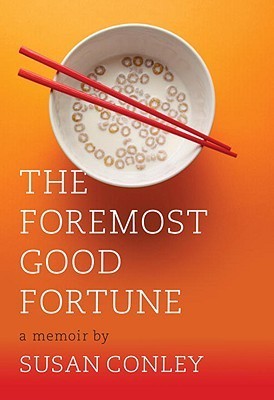
The Foremost Good Fortune
Book Description
Amidst the chaos of a bustling Beijing and the bittersweet memories of home, a mother grapples with her family's fragility and the uncertain future that looms. Torn between cultures and driven by the deep love for her children, she navigates the delicate balance of hope and despair. As she confronts her own fears and the stark realities of life abroad, every decision becomes a test of strength and resilience. With each poignant moment, the line between fortune and misfortune blurs. How far will she go to protect the ones she loves in a world where nothing is guaranteed?
Quick Book Summary
"The Foremost Good Fortune" by Susan Conley is a poignant memoir chronicling her family's relocation to Beijing and her struggle with a cancer diagnosis while facing the everyday challenges of expat life. As Conley adapts to a foreign culture, she also wrestles with the vulnerability of motherhood and the unpredictability of illness. The memoir captures the intricacies of navigating a new language, grappling with homesickness, raising young children abroad, and dealing with major life upheavals. Through lyrical prose and candid self-reflection, Conley explores the shifting line between luck and misfortune, finding moments of resilience and connection amid a haunting sense of impermanence. Her journey becomes a meditation on hope, adaptability, and the enduring power of family bonds.
Summary of Key Ideas
Table of Contents
Adapting to Life in a Foreign Culture
When Susan Conley moves to Beijing with her husband and two young sons, she embarks on a journey that is both exhilarating and overwhelming. The vibrant, chaotic life of modern China opens up new challenges: language barriers, social customs, and the ever-present sense of being an outsider. Conley carefully observes her new environment, noting both its beauty and its strangeness, as she attempts to build a daily routine and a sense of belonging. Amidst bustling city streets and unfamiliar traditions, she must also navigate questions of identity and cultural adaptation.
The Challenge of Motherhood Abroad
Parenting as an expatriate adds layers of complexity to Conley’s experience. She worries about keeping her sons safe and grounded as they encounter new schools, foods, and languages. These pressures intensify her sense of responsibility, as she becomes the family's anchor while they acclimate to shifting circumstances. Through her children, Conley witnesses innocence and resilience; their capacity to adapt and derive joy from small discoveries often contrasts with her own anxieties. The delicate balance between nurturing her sons and struggling with her own uncertainties becomes a central theme.
Confronting Illness and Vulnerability
The memoir takes a profound turn when Conley receives a diagnosis of breast cancer during her time in Beijing. The shock of illness, compounded by being far from her familiar support system, transforms her experience of living abroad. Suddenly, ordinary fears about cultural adjustment are overshadowed by the more pressing concerns of mortality and family stability. Conley’s vulnerability is laid bare as she endures medical procedures in an unfamiliar setting, grappling with deep isolation and the unpredictability of her future.
Resilience in the Face of Uncertainty
Amid adversity, Conley’s narrative explores themes of hope, resilience, and the capacity to endure. She slowly finds strength in the connections she makes, the support from her family, and moments of grace in everyday life. The memoir illustrates how persistence and adaptability can illuminate even the darkest periods. Her introspective writing reveals how changing perspectives on fortune and misfortune can foster gratitude and acceptance, even in compromised circumstances. The sense of community—both local and long-distance—proves critical in her recovery process.
Redefining Fortune and Home
Ultimately, "The Foremost Good Fortune" is a meditation on what it means to belong and to protect loved ones in an unstable world. The memoir ebbs between pain and hope, foregrounding the emotional elasticity required to cope with multiple cultural and existential upheavals. Conley’s journey redefines the notion of home, suggesting that real fortune lies in the love, resilience, and courage sustaining her family throughout the tumult. Her narrative becomes both deeply personal and universally resonant, offering insight into survival and transformation amid profound change.
Download This Summary
Get a free PDF of this summary instantly — no email required.





